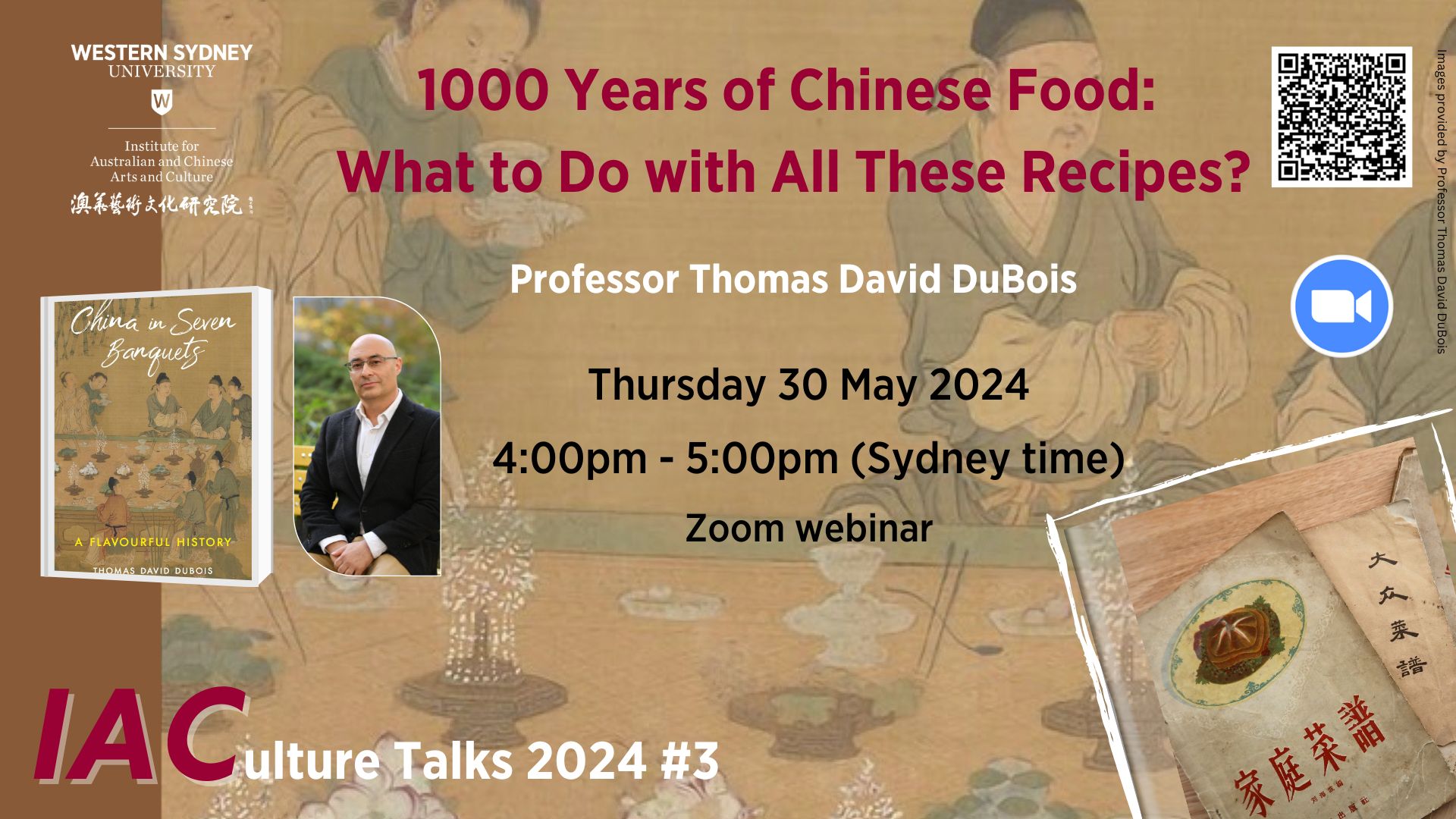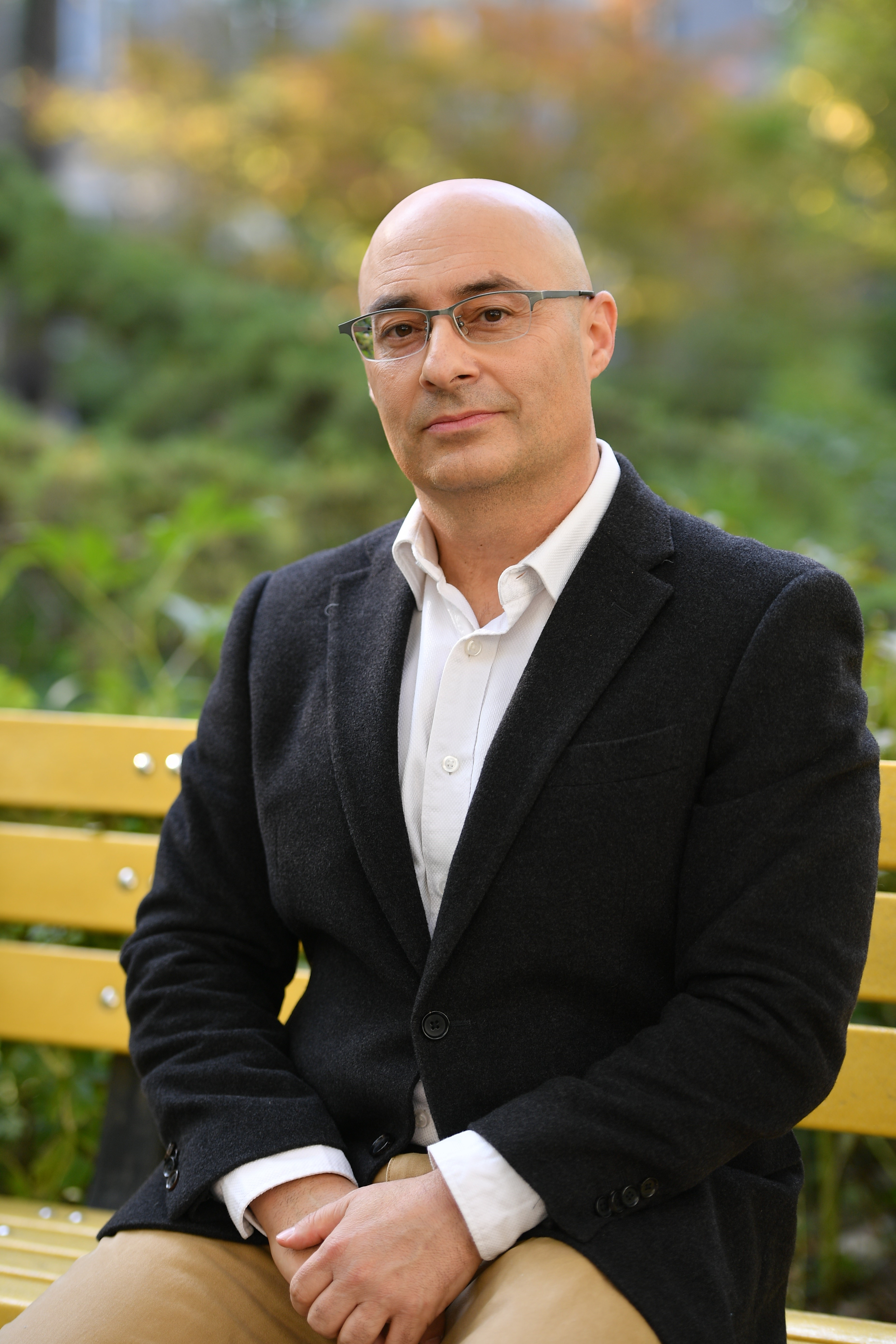IAC Culture Talks Series 2 Lecture Three: 1000 Years of Chinese Food: What to Do with All These Recipes? by Professor Thomas David DuBois

Date: Thursday 30 May 2024
Time: 4:00pm - 5:00pm (Sydney time)
Zoom webinar
RSVP Essential. Please RSVP HERE.
Abstract
Writing in his 1918 “Plan for National Construction,” Sun Yat-sen told readers “In every way, China lags behind the civilized nations of the world—except for food, in which we have no peer.” Food has long been central to all facets of Chinese society. Chinese kitchen technique is no less a high art than painting or opera. For diners, cuisine is a daily reminder of taste and status. Ingredients are chosen to reflect season, health and even moral philosophy. China’s culinary tradition is not only profound, it is also well-documented. While researching my new book on Chinese food history, I collected a full bookshelf of food writings going back to the sixth century. These works recall the etiquette of the table, the customs of the kitchen, and the musings of generations of taste-makers. But more than anything else, they contain recipes. Sometimes simple, sometimes detailed, these thousands of recipes are an archive of tastes and techniques that call out to us to explore.
What exactly are all these recipes good for and what does the evolution of China’s tastes, ingredients, and techniques tell us about deeper currents of cultural interaction and economic change? This talk will start with the question of how cookbooks are a source to understand changing culinary fashions, historical commodity prices and household budgets, class aspirations around dining, and the changing social figure of the cook. We will then briefly bring these perspectives to China’s wealth of cookbooks before focusing our attention on technique, cuisine and authenticity by examining the evolution of particular dishes from the Song dynasty to the present day. We close with a few thoughts on the tools and perspectives needed to conduct a genealogy of culinary craft.
At the end of the talk some finished dishes will be presented. All recipes will be made available to webinar attendees.
About the Speaker
Professor Thomas David DuBois is a historian of modern China. Since 2019, he has been Professor of Humanities in the Folk Culture Research Centre of Beijing Normal University where he teaches in Chinese. He also holds concurrent professorships at universities in Shandong and Hebei. Prior to joining BNU, he held faculty positions at the National University of Singapore and the Australian National University.
Before turning to food history, Professor DuBois spent two decades in the study of Chinese rural religion, publishing three books Sacred Village: Social Change and Religious Life in Rural North China (2005); Religion and the Making of Modern East Asia (2012); and Empire and the Meaning of Religion in Northeast Asia (2016), as well as about three dozen articles on topics ranging from religious freedom to the legal profession in Japanese-occupied Manchuria. Inspired by fieldwork in the Mongolian grasslands, his work in food initially focused on China’s beef and dairy industries. He has also written on food branding, nostalgia, foreign direct investment, and the growth of global food enterprises.
In 2020, Thomas DuBois fulfilled his ambition of attending cooking school in Sichuan and was subsequently apprenticed in two restaurant kitchens, an experience that has deeply influenced how he understands and writes about food. His new book, China in Seven Banquets: A Flavourful History, has just been published by Reaktion Books and combines his training as a historian and his passion as a cook.
Thomas David DuBois 杜博思 Professor of Humanities, Beijing Normal University
China in Seven Banquets: a Flavourful History, published by Reaktion Books
